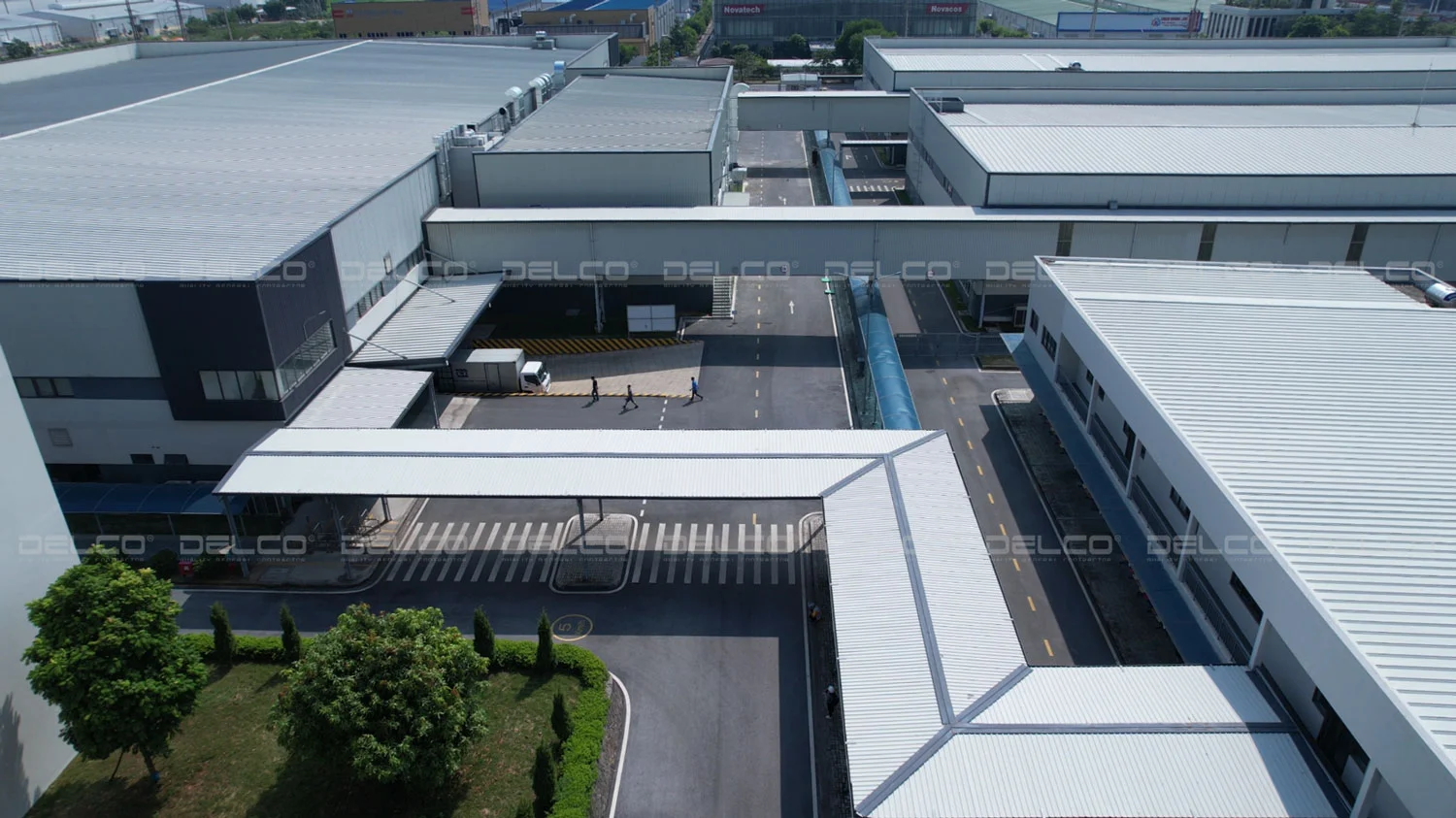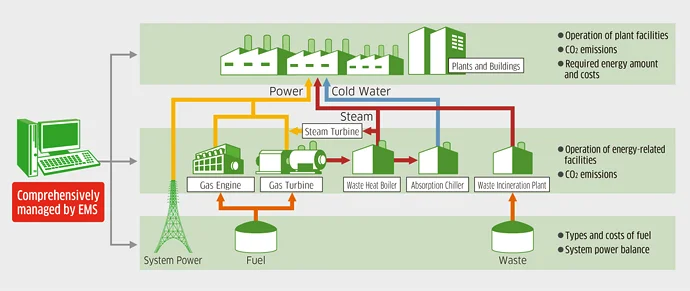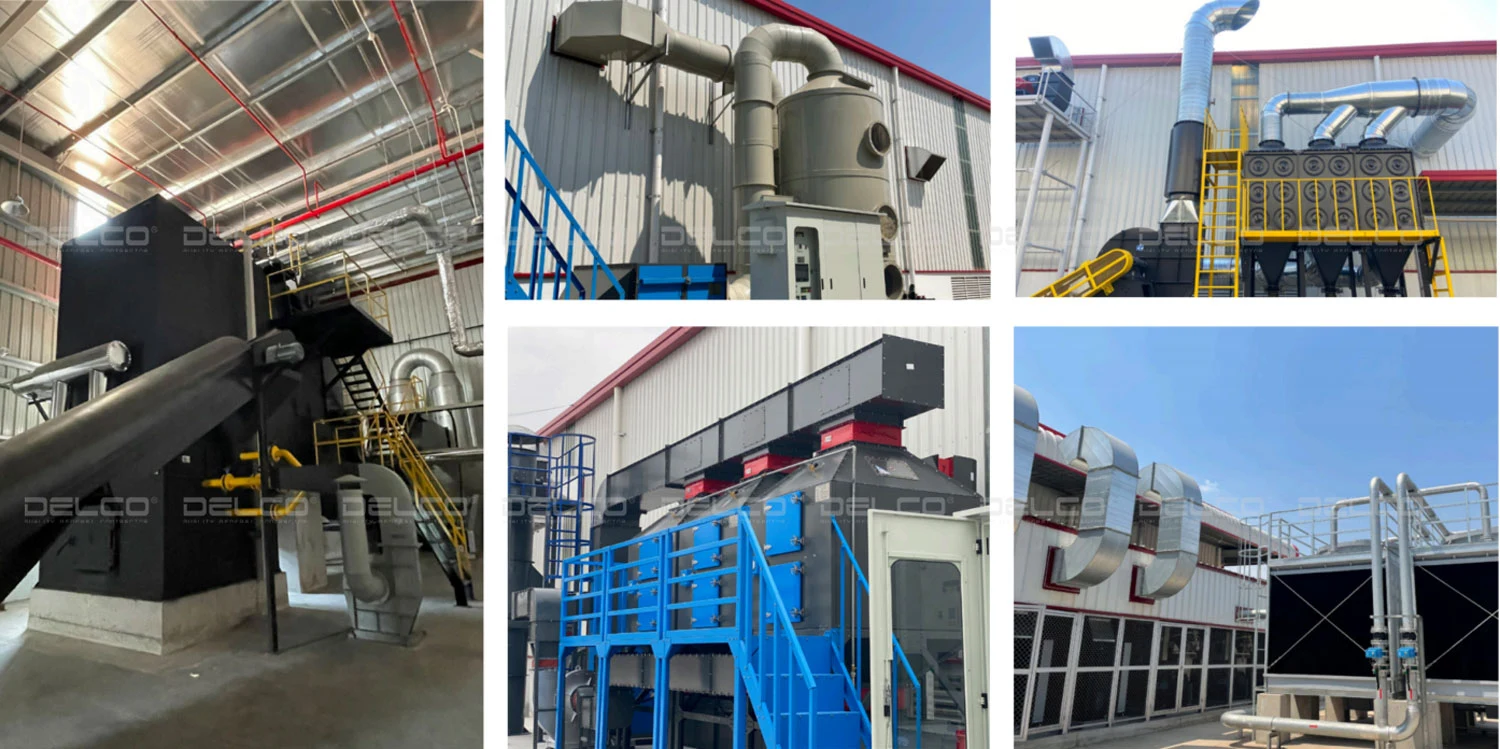The construction process for factories and workshops often proceeds quickly, with a tight schedule and strict technical standards to ensure safe, stable production operations. Below is an overview of the factory construction process for investors to refer to, ensuring adherence to safety, technical accuracy, and schedule requirements.
Site Preparation and Temporary Works
The first step in the factory construction process is site preparation, which includes demolishing existing items (if necessary), clearing and land-leveling the construction area, ensuring that the ground is suitable for construction. The factory contractor will also build temporary facilities such as site offices, temporary fences, and install temporary electricity and water supply, as well as sanitation areas, to facilitate project management and site operations.
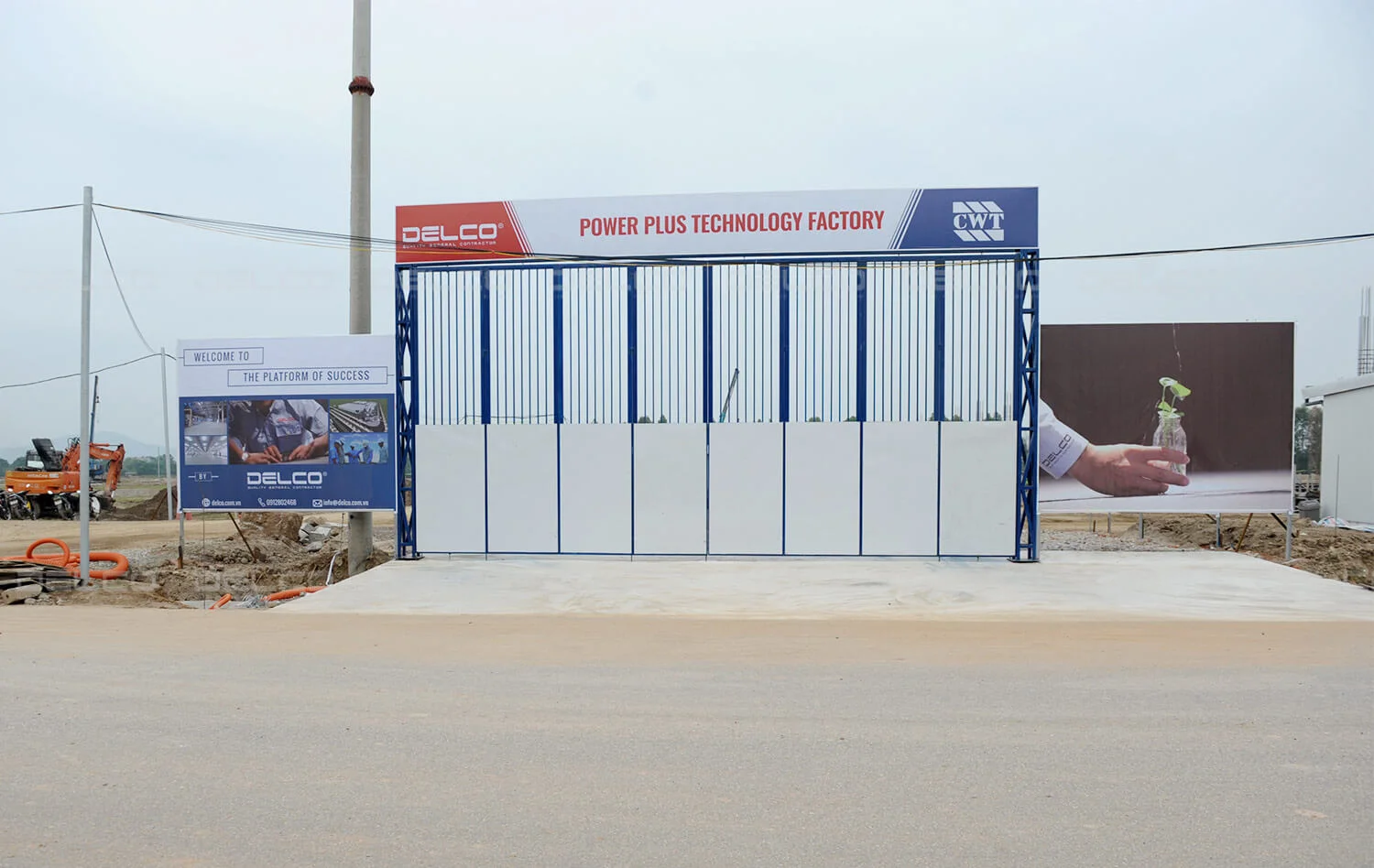
Site Preparation and Temporary Works at DELCO Projects
Many people believe that temporary works have low costs and do not directly impact factory construction quality. However, site organization and construction layout plan significantly affect construction safety and workflow logic, particularly in high-paced schedules that involve simultaneous tasks.
Foundation Construction
Foundation construction is one of the most crucial steps in building a factory, as it greatly influences the durability and stability of the facility. Particularly for multi-story factories, printing and stamping workshops, or factories using forklifts and robotic arms, a stable foundation is vital for production processes, production capacity and product quality.
Depending on factors such as geological conditions, production technology, and factory design requirements, the contractor will propose appropriate construction methods that meet the necessary load-bearing capacity. The foundation construction process must be strictly monitored for quality, complying with design standards for foundation dimensions, shape, concrete surface quality, concrete strength, and waterproofing capabilities.
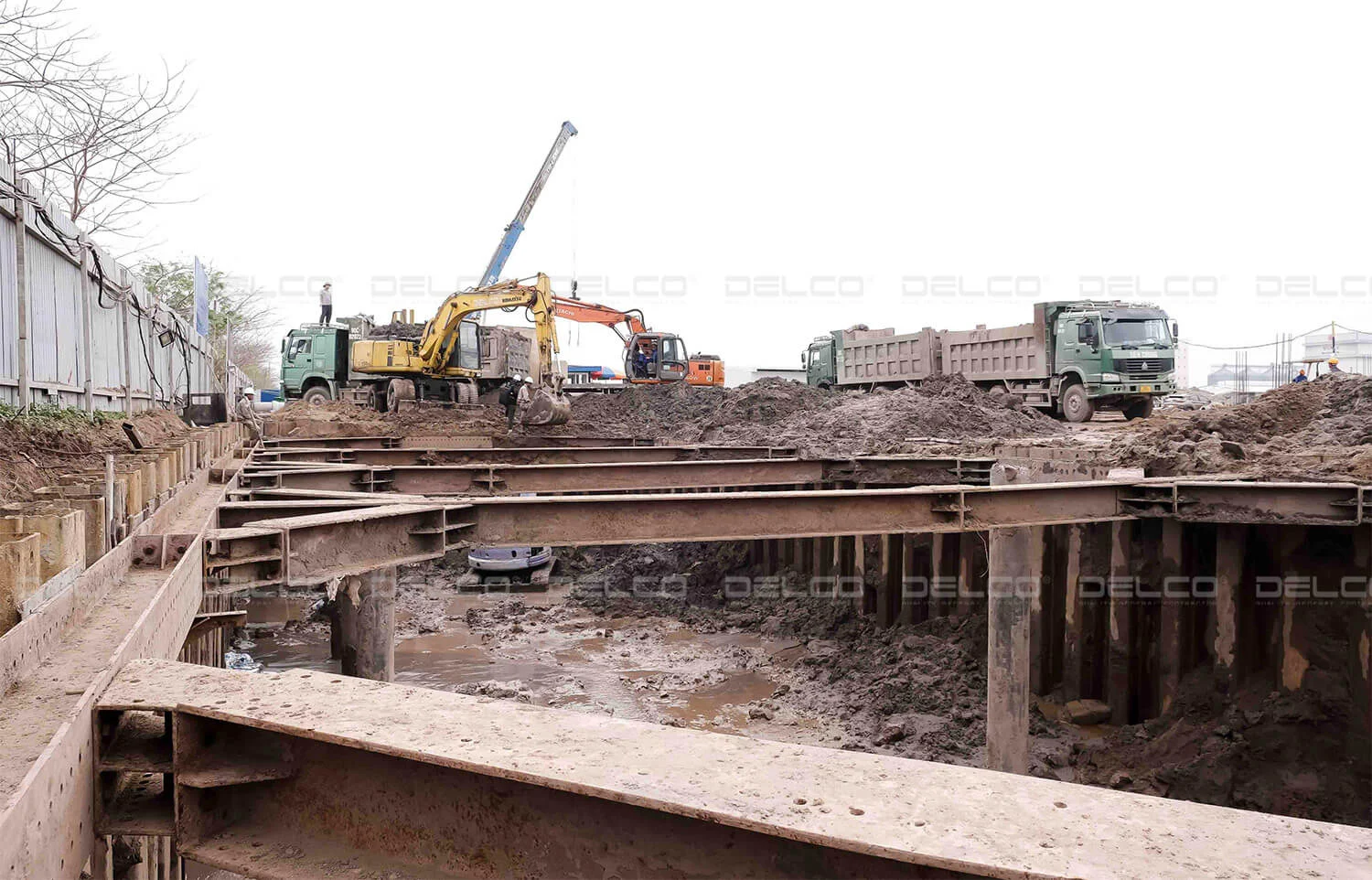
Larsen Sheet Piling – Construction Image of DELCO
Factory Structural Construction
After completing the foundation, the contractor will proceed with constructing the factory structure, such as columns and beams. Depending on the design, the structure may use either prefabricated steel framing or reinforced concrete. Regardless of the structural option, the contractor must focus on construction quality, ensuring aesthetics and comply with technical standards. This includes checking the torque on structural bolts, alignment of primary steel structures, and concrete quality and surface for reinforced concrete beams and columns. Additionally, technical openings and pass-throughs in the beams and columns should be installed at this stage to avoid later drilling, which could affect structural integrity and aesthetics.
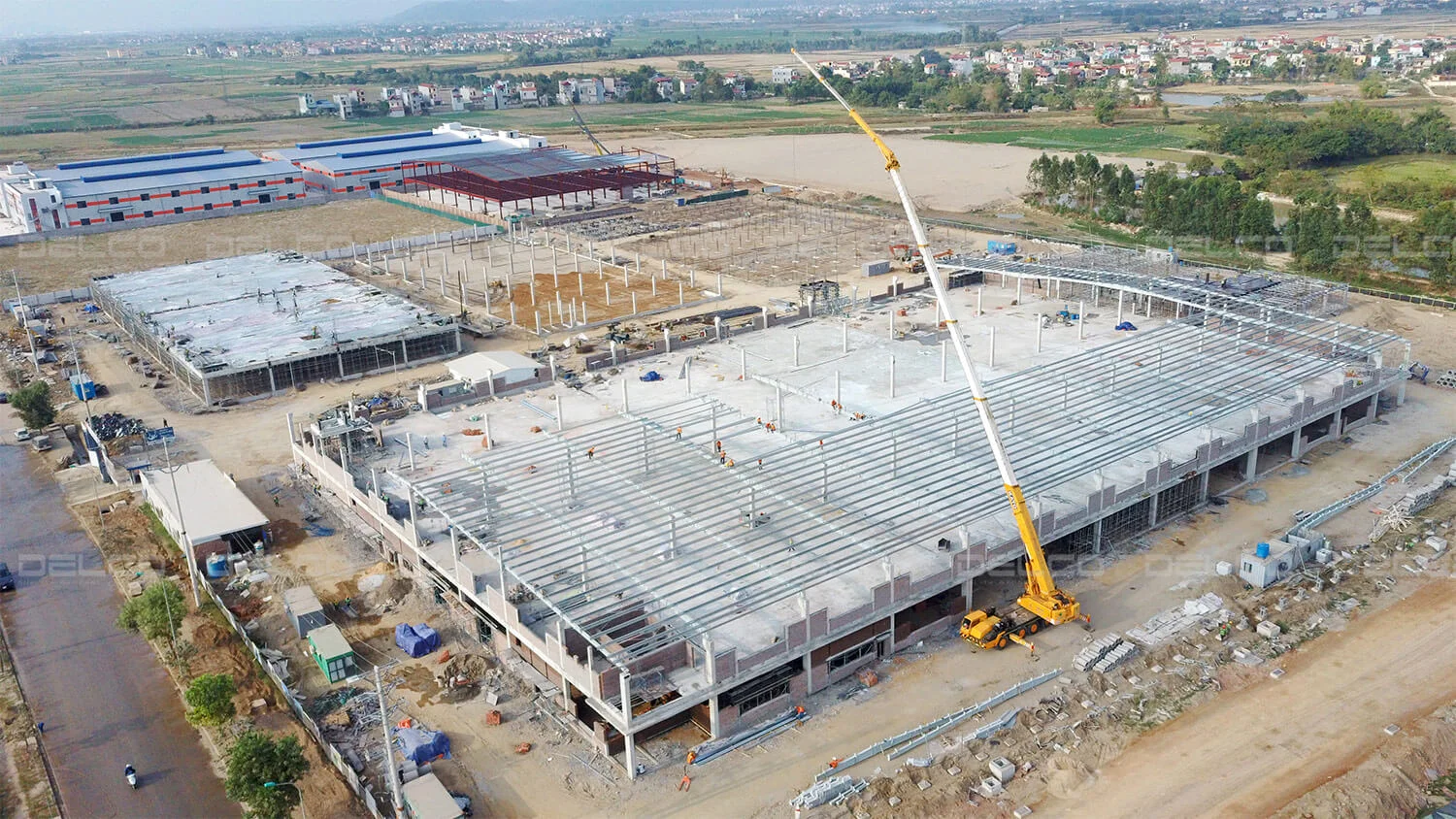
Steel Structure Factory Construction – Construction Image of DELCO
Covering Structure Construction
The covering structure of the industrial workshop includes the installation of surrounding walls and roofing. The surrounding walls can be made of brick or thermal insulation panels to improve energy efficiency and soundproofing. The factory roofing, often made of colored metal sheets, is then installed to protect the interior from weather elements.
The covering structure must be constructed solidly and sealed tightly to limit the adverse effects of weather, helping save on HVAC energy costs and reducing the risk of leaks that could damage raw materials and finished products.
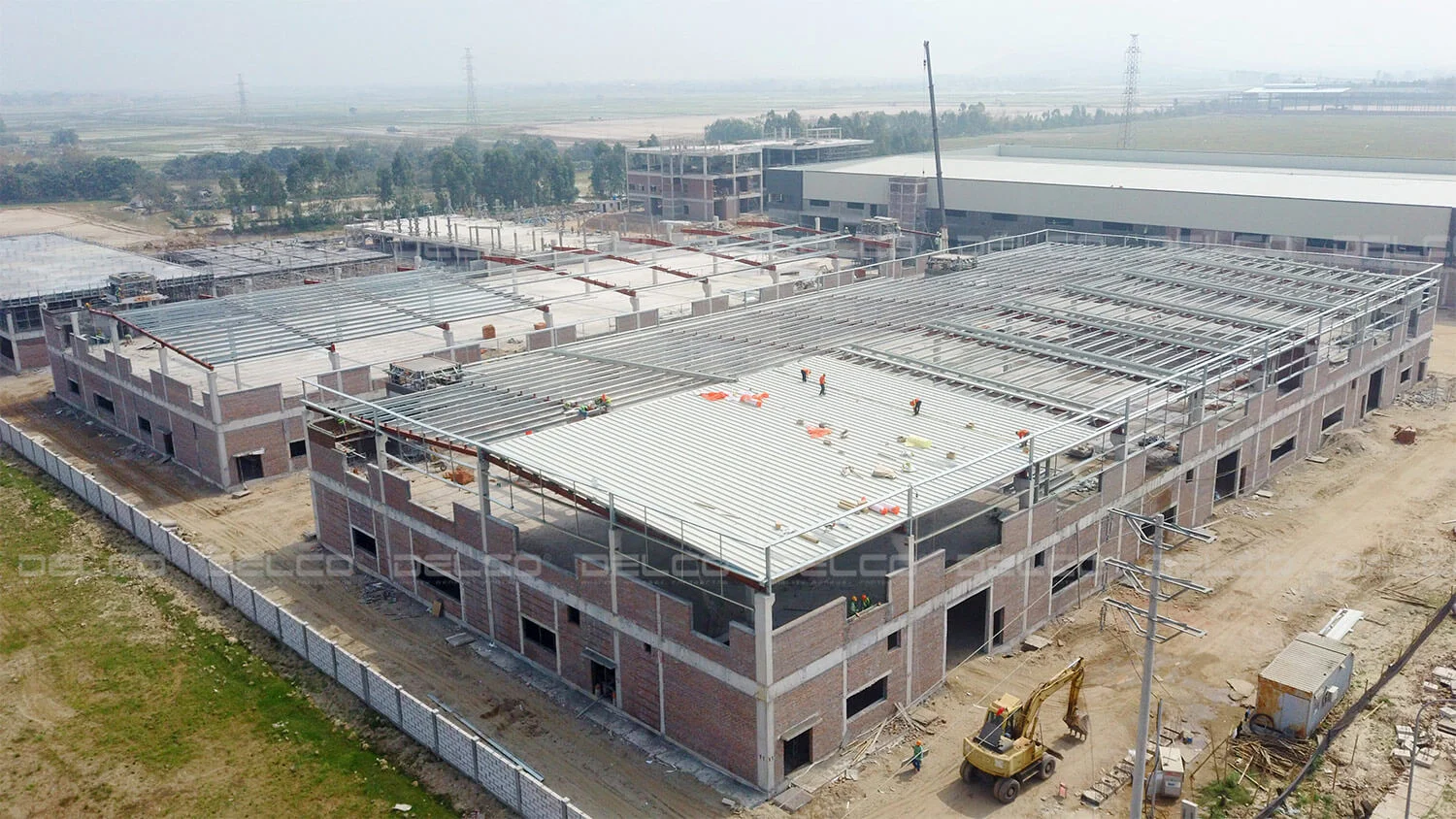
Roofing and Wall Construction – Construction Image of DELCO
Factory Floor Construction
The factory floor construction process includes pouring concrete and surface treatment to ensure flatness and durability. This typically includes a final grading, compacting the soil, and pouring reinforced concrete. Once the concrete is poured, specialized equipments is used to level the floor and apply surface treatments to enhance durability and wear resistance. Common flooring solutions for factories include epoxy floors, liquid hardener-treated concrete floors, anti-static vinyl floors, and PU floors.
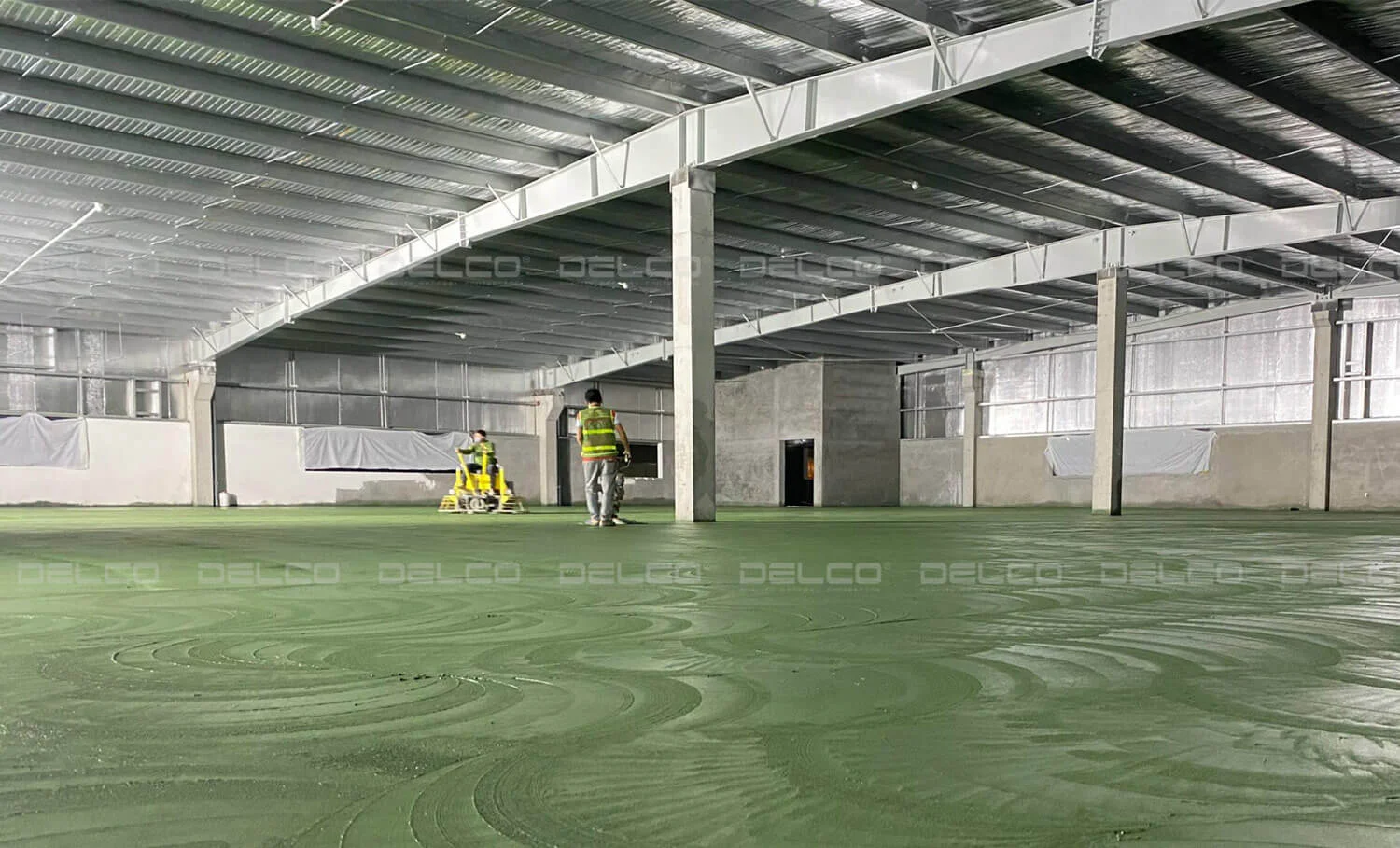
Factory Floor Construction – Construction Image of DELCO
Construction and Installation of Factory MEP Systems
The MEP (Mechanical, Electrical, and Plumbing) system is essential for controlling the entire factory’s operations and production, including electrical systems, HVAC, water supply and drainage, and fire protection systems. The construction of factory MEP systems can be divided into three main sections: mechanical, electrical, and plumbing.
An experienced MEP contractor is required to design and execute the technical drawings according to on-site conditions, actively adjusting to optimize efficiency and cost. Additionally, the quality control and commissioning of the MEP system must be conducted meticulously to ensure safety and compliance with operational standards for electrical, fire protection, temperature, and humidity requirements.
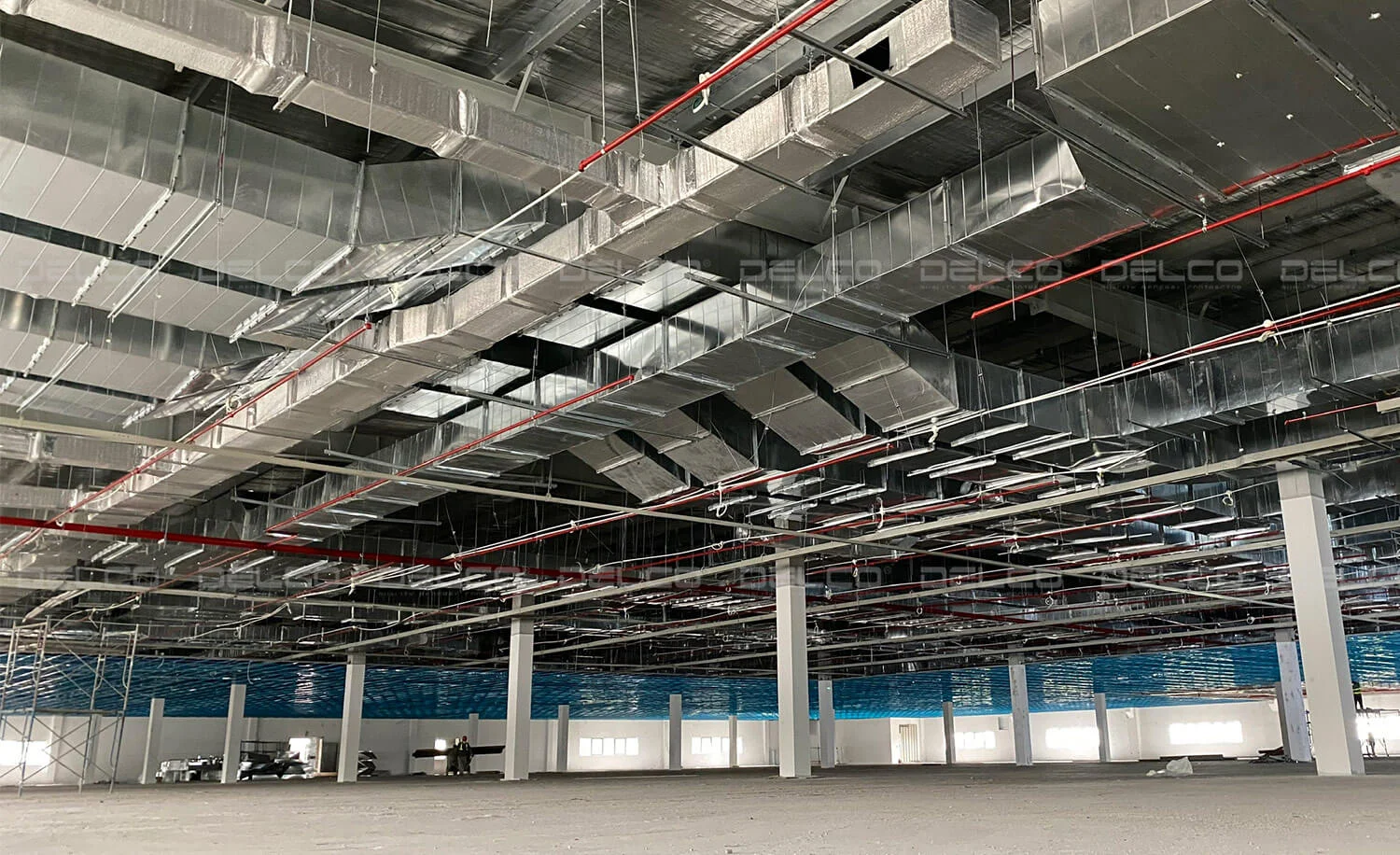
HVAC System Construction – Construction Image of DELCO
Infrastructure and Landscape Construction
The contractor usually carries out external infrastructure and landscape construction in parallel with MEP system installation. The infrastructure includes underground tanks, waste disposal facilities, drainage systems, internal roads, and parking areas for workers, facilitating organized traffic and smooth factory operations. At the same time, landscaping elements such as greenery, gardens, and sidewalks are added to enhance aesthetics and create a cool, friendly working environment.
Finishing Works
Once the main construction stages are complete, finishing works are carried out. These include protective coatings, door installations, tiling, waterproofing, interior installations, and industrial cleaning. The finishing stage involves numerous small tasks performed simultaneously or sequentially, so careful planning and scientific quality control are crucial to ensure the factory’s overall aesthetic and quality.
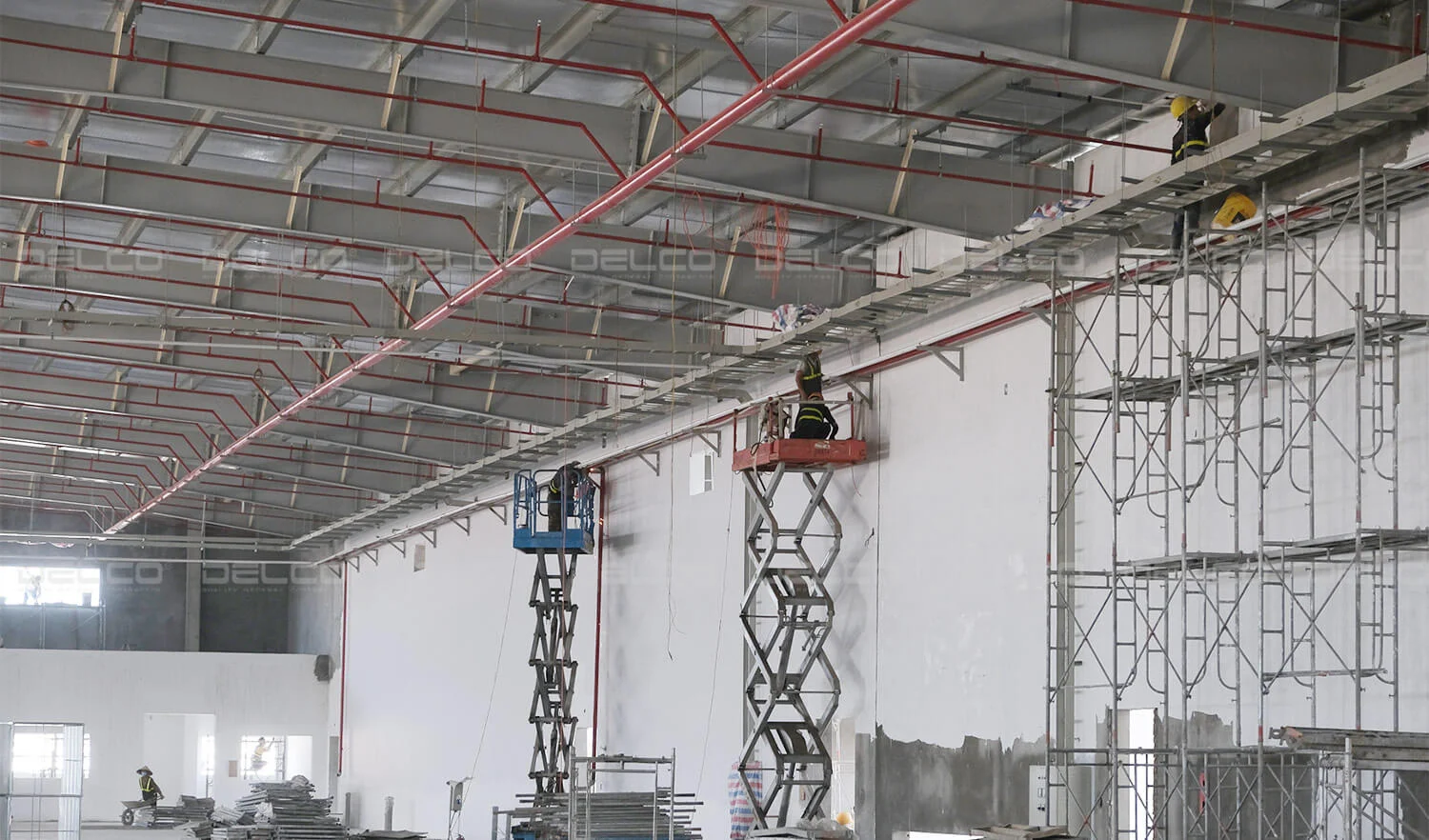
Factory finishing works – Construction Image of DELCO
Quality inspection and Handover
The final step in the factory construction process is inspection and handover to the investor. The supervision team works with the investor to conduct a thorough inspection to ensure safety and quality, addressing any minor issues before completing handover procedures. During the factory completion process, all work items need to be carefully inspected to meet quality standards. After passing inspection, the factory is officially handed over to the investor and ready for operation.
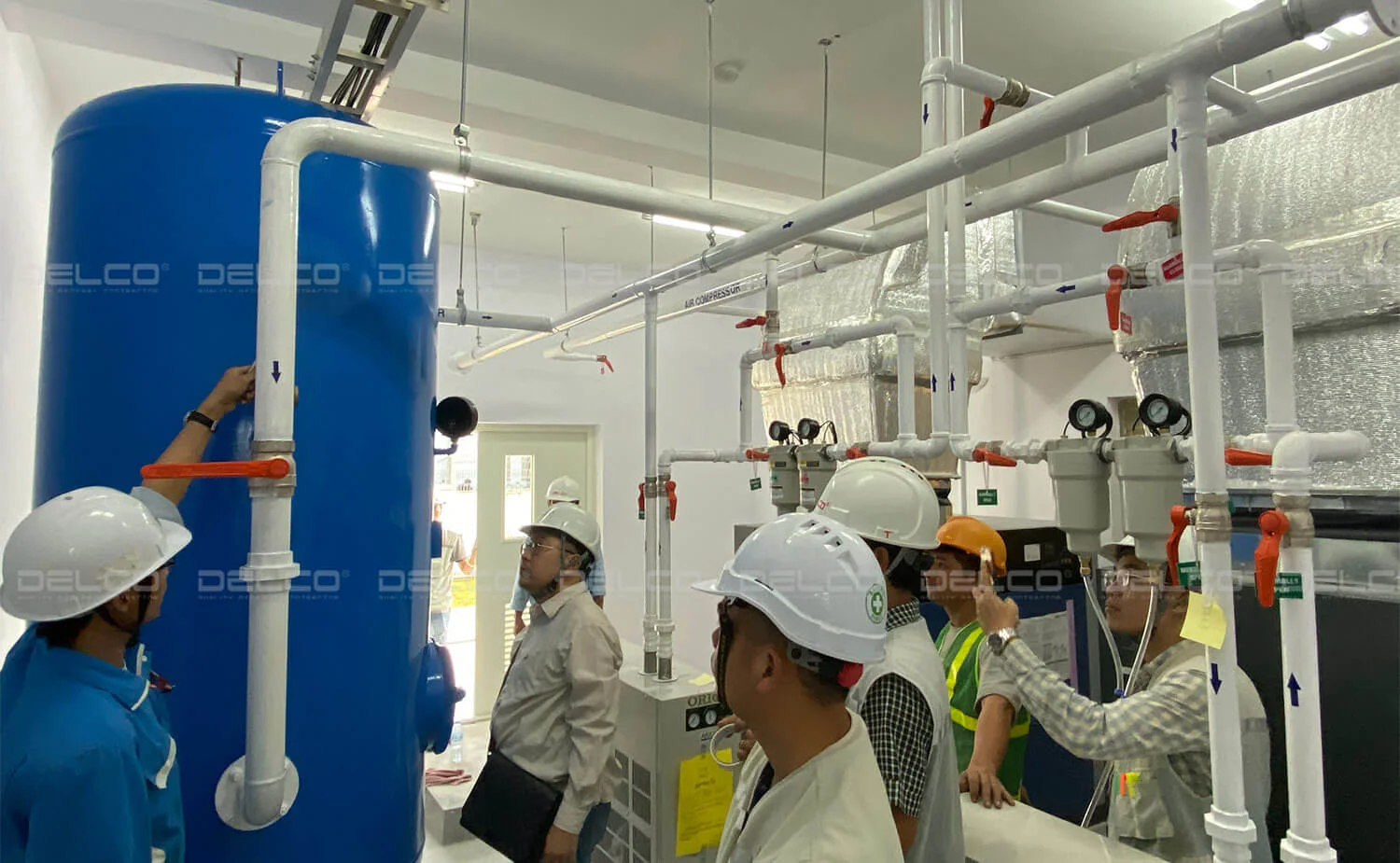
Inspection and Handover of Compressed Air System – Construction Image at DELCO Project
See more: Comprehensive Quotation of Factory Design and Build in Vietnam updated 2024
See more: Factors affecting factory construction cost


